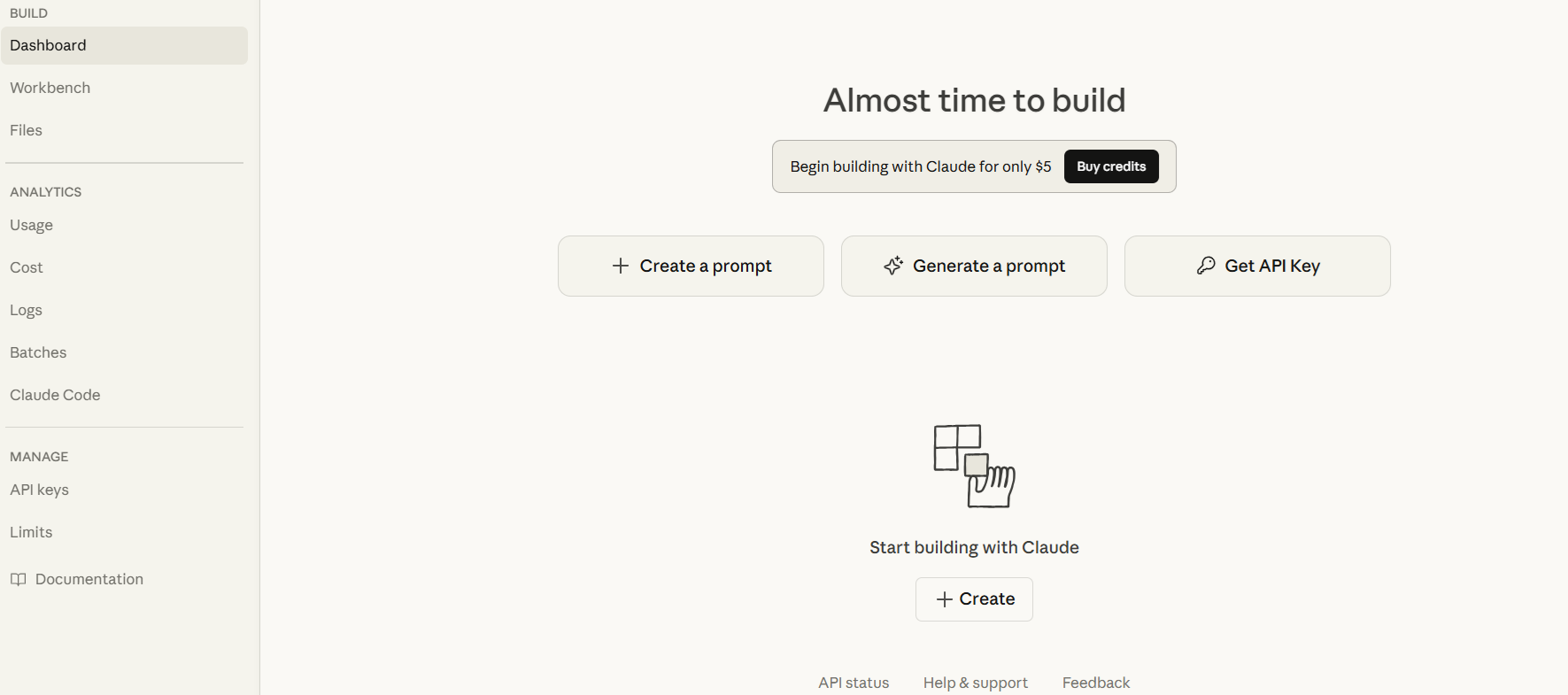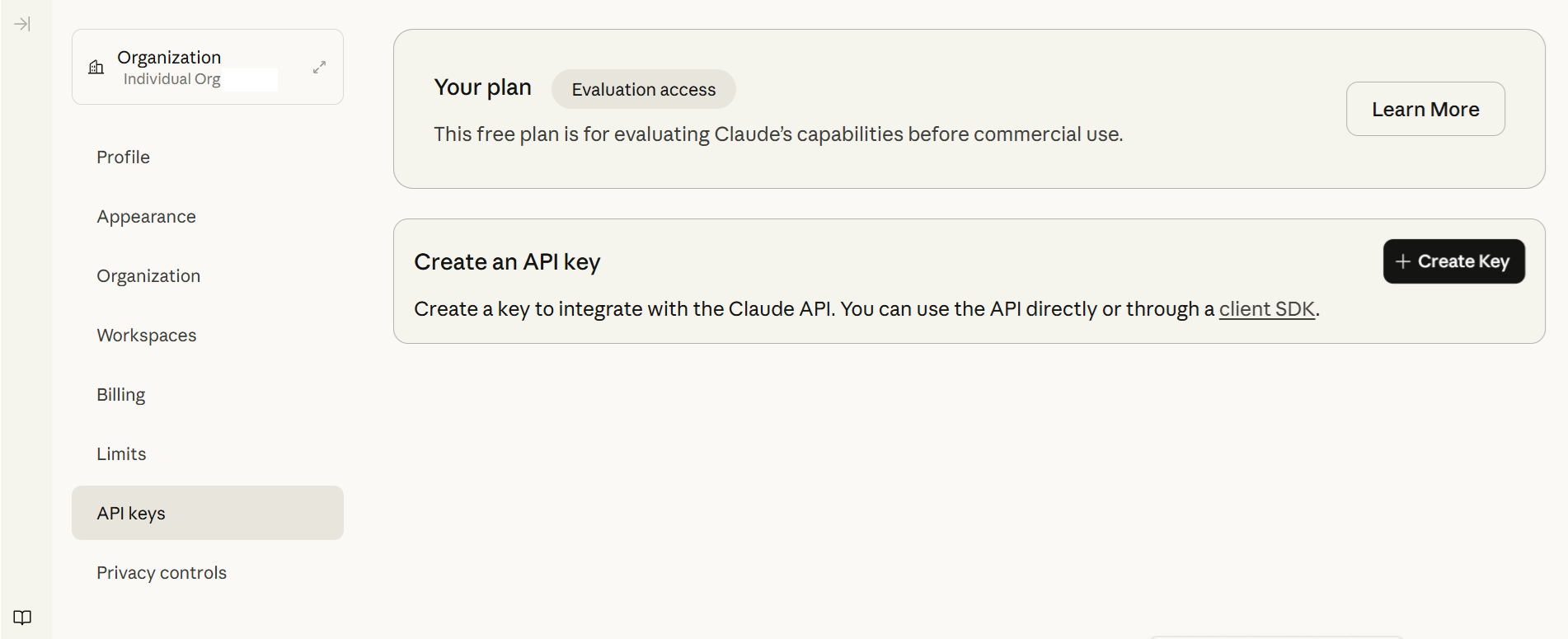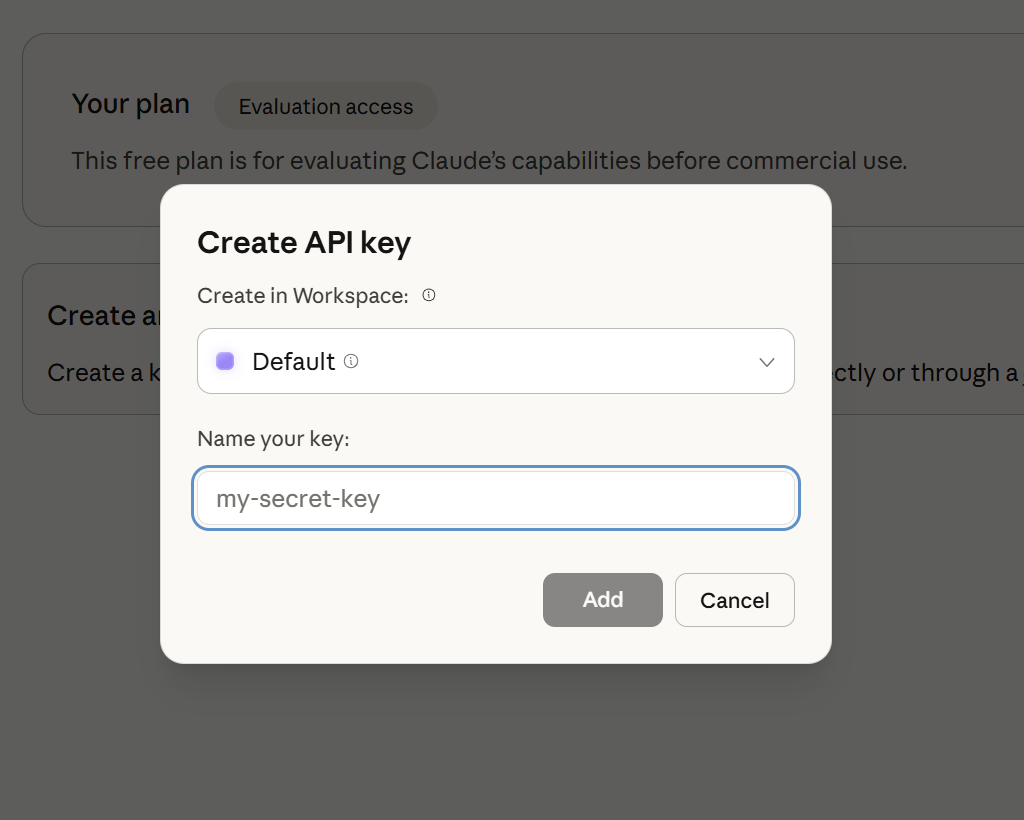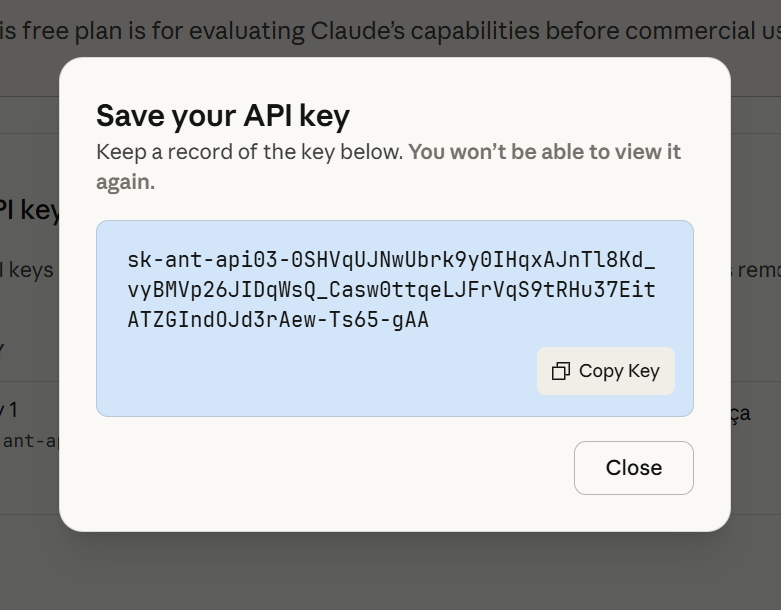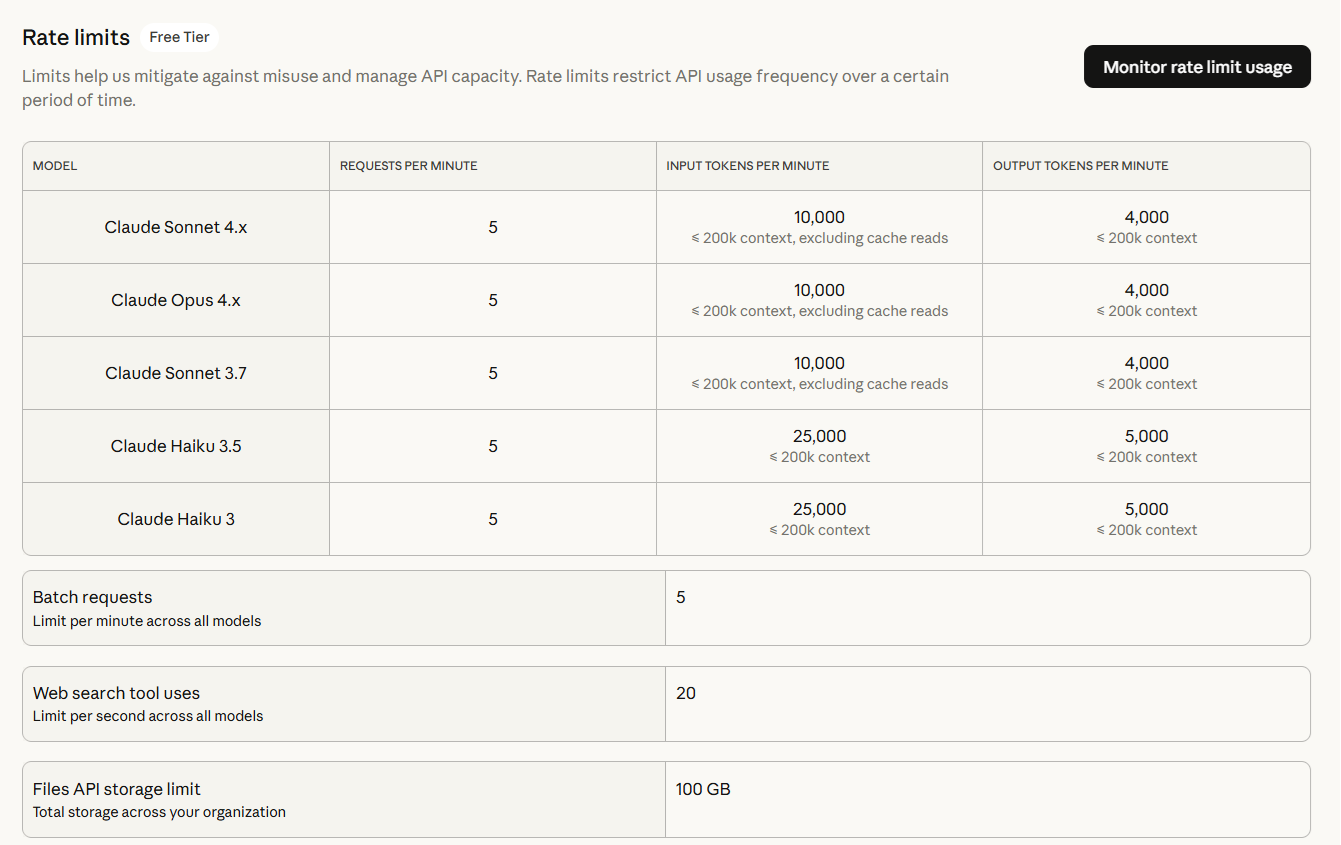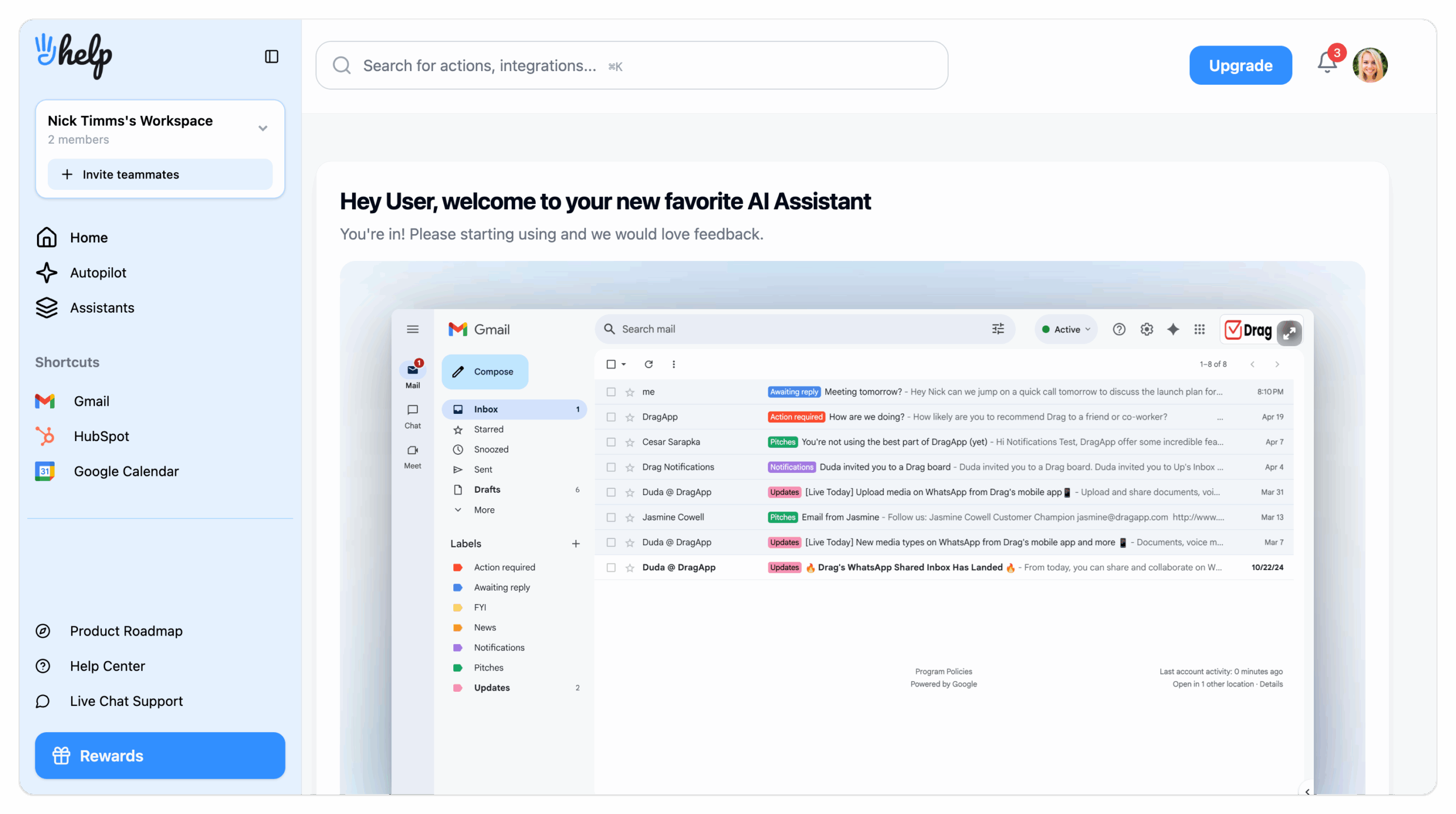Using AI language models can be a game-changer for businesses. However, prompting a chatbot like Claude AI each time you require extra automation won’t cut it. Which is why integration is crucial. To do that, you need to set up Claude API keys and make it a flexible part of your workflow.
What’s a Claude API key and why do you need one?
AI provider API keys are the only method for your company’s platform to fully integrate large language models, such as Claude, seamlessly. Instead of using individual prompts, you can automate certain AI-driven workflows, such as chatbot responses or data extraction by setting up an integration.
But of course, using single passwords would be a hassle (and not secure enough). That’s why API keys help: they are alphanumeric datasets created for each AI integration, authorizing your scripts and tools to access Claude’s models.
That way, you can manage authorizations by task instead of user or company, keeping track of usage, safety concerns, and troubleshooting any issues individually.
How do Claude API keys help businesses thrive?
Claude AI offers multiple language models that include text and image-based automations. They can streamline tasks, such as email replies, customer support, and internal updates.
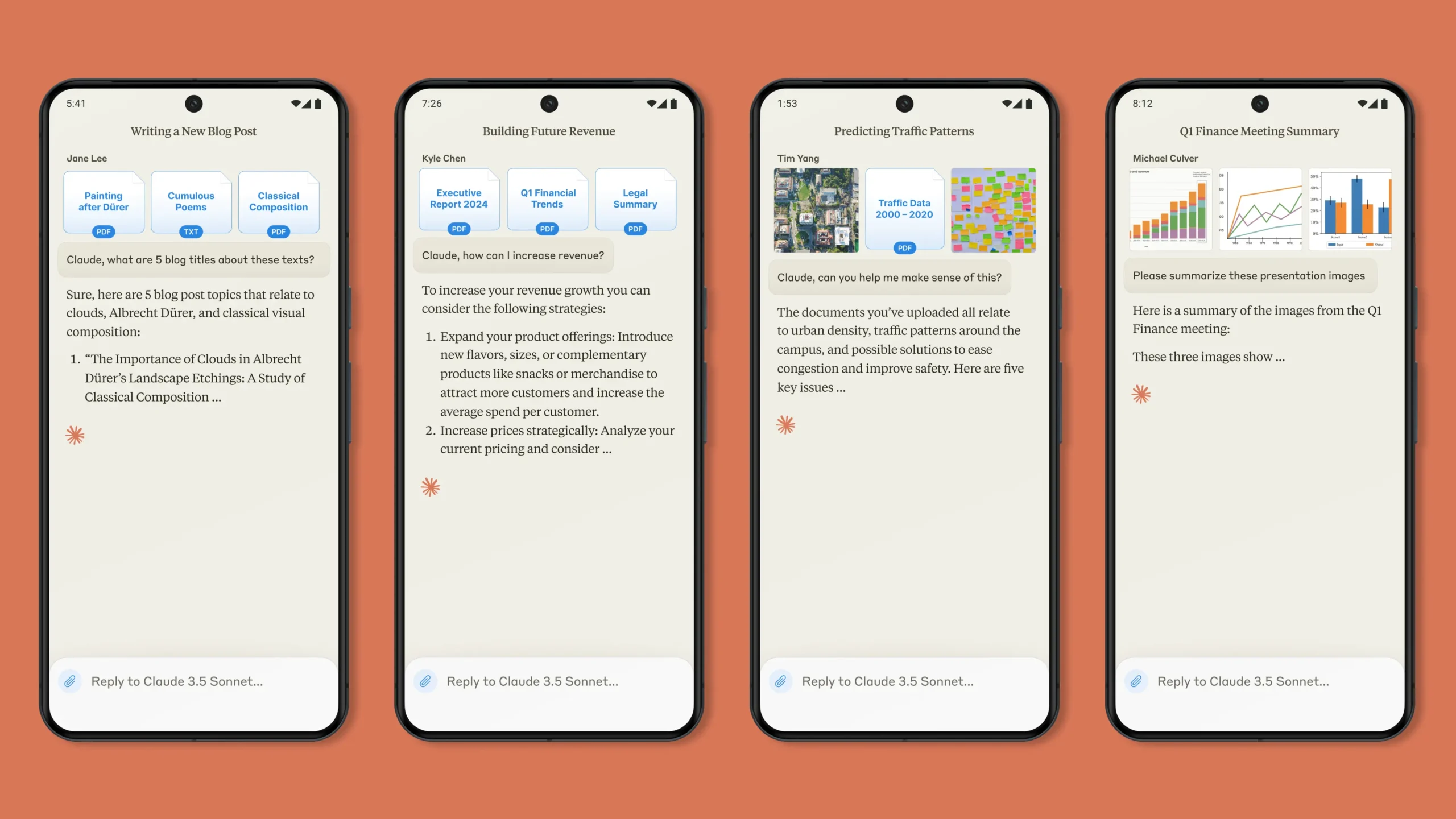
source: Anthropic
How can Claude AI summarize text for strategic decision-making?
Claude AI summarizes long documents, email threads, and meeting notes into clear and concise summaries for teams. This ensures that you can make informed decisions faster with the key factors, instead of needing to go through pages of content.
Is it possible to use Claude API keys to write better emails?
You can use Claude to draft AI email replies and go through your inbox much faster by integrating it with your inbox via API keys. That way, your inbox client can use the language model to suggest smart responses based on context.
Does Claude AI extract data for market research?
Yes, Claude AI filters through unstructured text such as customer reviews, news articles, or transcripts. Business owners and managers can use these insights to track trends, understand market sentiment, and identify opportunities for growth and new strategies.
Can marketing agents benefit from Claude AI?
Marketing teams can use Claude AI’s language models to develop content drafts at a higher scale and do A/B testing. With this tool, they can maintain a consistent brand voice and respond quickly and efficiently to new market demands.
Is Claude AI helpful for customer service?
Yes, Claude AI is able to analyze sentiment, preferences, and overall customer patterns to deliver personalized, actionable messages. Businesses can tailor products, content, and services to individual customer needs, increasing conversion rates.
Another benefit from Claude for customer engagement is the translation feature, which helps adapt content and tools to global audiences, amplifying a brand’s reach.
Can I use Claude API keys for tech tasks?
Claude AI assists developers by reviewing code for errors, generating boilerplate, and providing interactive tutorials. This speeds up project deadlines, improves code quality, and reduces repetitive tasks.
Which Claude model should you pick?
It depends on what you’re using Claude for. There are four main models, each with a different strength and cost x benefit to look into. Before you start, here’s a basic comparison:
| Model | Main features | Use cases |
|---|---|---|
| Claude Sonnet 4.5 | Most advanced Claude model. Focus on complex reasoning, longer autonomous workflows, and tool integration for agents and coding tasks | Coding, cybersecurity automation, complex financial analysis, research tasks, multi-agent flows |
| Claude Opus 4.1 | Focus on reasoning for specialized and creative tasks, with a higher level of nuance and precision | Creative writing, specialized scientific analysis, and database filtering |
| Claude Sonnet 4 | Balance between power and ease of use. Can be used for tasks that require quick turnaround with context learning | Chatbot automation, code generation, data analysis, and basic workflows |
| Claude 3.5 Haiku | This is the model with the best cost x benefit that can be used for optimizing and automating high-volume, basic tasks without deep knowledge requirements | Basic customer support, scalable content generation, and simple data extraction |
How to set up Claude API keys: step-by-step
Now that you know the benefits of Claude AI and why API keys are a crucial part of project integration, it’s time to set up your connection. Here’s how:
- Access Claude.ai and create an account
- You can pick between individual and company accounts
- Open the Claude console dashboard:
- Click on API keys in the left menu
- Now you’ll see the API admin page:
- Click on Create Key
- A pop-up will appear. Give your key a name and attach it to a new or existing project tag:
- Select Add
- The next window will show you your key. Copy it, because you cannot open this window again:
Close the window and you’re done. You should repeat this process each time you implement a new AI task automation into your workflows, so that each connection has an individual key.
How to keep your Claude API keys safe
Keeping your Claude API keys secure is crucial to preventing unauthorized access, data breaches, and unexpected charges. Your API keys work as a complex password for your AI tools, so treat them with care to protect your business and operations.
Here are some best practices to keep in mind:
- Never share your Claude API keys publicly: don’t post them in forums, code repositories, or include them in shared screenshots.
- Use environment variables or secret managers: save keys securely in your development environment instead of hardcoding them.
- Rotate the keys periodically: update your Claude API keys frequently to reduce risk if there is a data breach.
- Monitor usage: check your dashboard to keep track of API calls and detect unusual activity.
- Limit permissions: only provide keys to systems that require them and don’t use them in multiple automations.
By following these steps, you can make sure your Claude API keys give your business reliable access to AI resources while minimizing security risks.
How much does Claude AI cost?
Claude API keys can help you access Claude’s LLMs for free, but there are limitations. Basically, free users have a smaller limit of tokens, which are needed for any automation tasks. Here’s a summary:
For instance, if you’re a free Claude AI user, you’re limited to 5 requests per minute. That doesn’t work for companies that are building AI-driven automations for e-commerce chatbots or teams that use Claude for email drafts.
Claude does offer paid subscriptions with higher usage limits and request frequency. They start at $25/person/month and include collaboration features for teams as well.
Can Claude API keys enhance email tasks?
Yes, users can benefit from AI-powered automations to filter and reply to emails, enhancing productivity on email-based workflows. Instead of prompting Claude manually, they can use API keys to create an automatic integration with the email client itself.
Our solution, HeyHelp, is a fully customizable AI email assistant that uses Claude AI (and other language models) to build a better email automation system on Gmail for professionals.
What are HeyHelp’s AI features?
With AI language models, HeyHelp creates an individual inbox experience. It can:
- Triage emails based on urgency with auto-tagging, archiving, and highlighting them
- Suggest smart replies based on message context and inbox history
- Send follow-ups to keep up with ongoing conversations
- Integrate with your calendar to schedule meetings and events
Moreover, HeyHelp learns from you, ensuring your inbox stays consistent and keeps bringing AI power on an individual level to your organization’s needs.
What you need to know about Claude API keys
Claude API keys are needed to unlock the full potential of Claude AI for your business workflows. By integrating them into your systems, you can automate tasks, generate content, extract insights, and deliver flexible customer experiences with AI power.
Whether you’re managing emails, building chatbots, or analyzing data, using Claude API keys ensures secure access to powerful AI models. Don’t forget to follow best practices for key management to protect your organization from unauthorized access.
To go even further, implement tools that include Claude API keys to build custom experiences, such as AI email assistants. That way, you can leverage these innovations for growth and long-term strategy.
Frequently Asked Questions about Claude API keys
What are Claude API keys and why should I use them?
Claude API keys are unique access codes that allow your business to securely integrate Claude AI into your workflows. They are required for authentication, usage monitoring and overall safety.
How do I keep my Claude API keys safe?
To keep your Claude API keys secure, never share them publicly, store them in environment variables or secret managers, rotate them regularly, monitor usage, and limit access to only necessary systems and users.
Can Claude API keys help automate email tasks?
Yes! Claude API keys allow AI-powered automation for email workflows with tools like Hey Help email assistant. You can draft replies, filter messages, send follow-ups, and even integrate your inbox with calendars for smarter scheduling.
What tasks can businesses use Claude API keys for?
Claude API keys are useful to automate for automating business tasks such as document summarization, content generation, customer support smart replies, data analysis, multilingual translation, A/B testing and market research.

